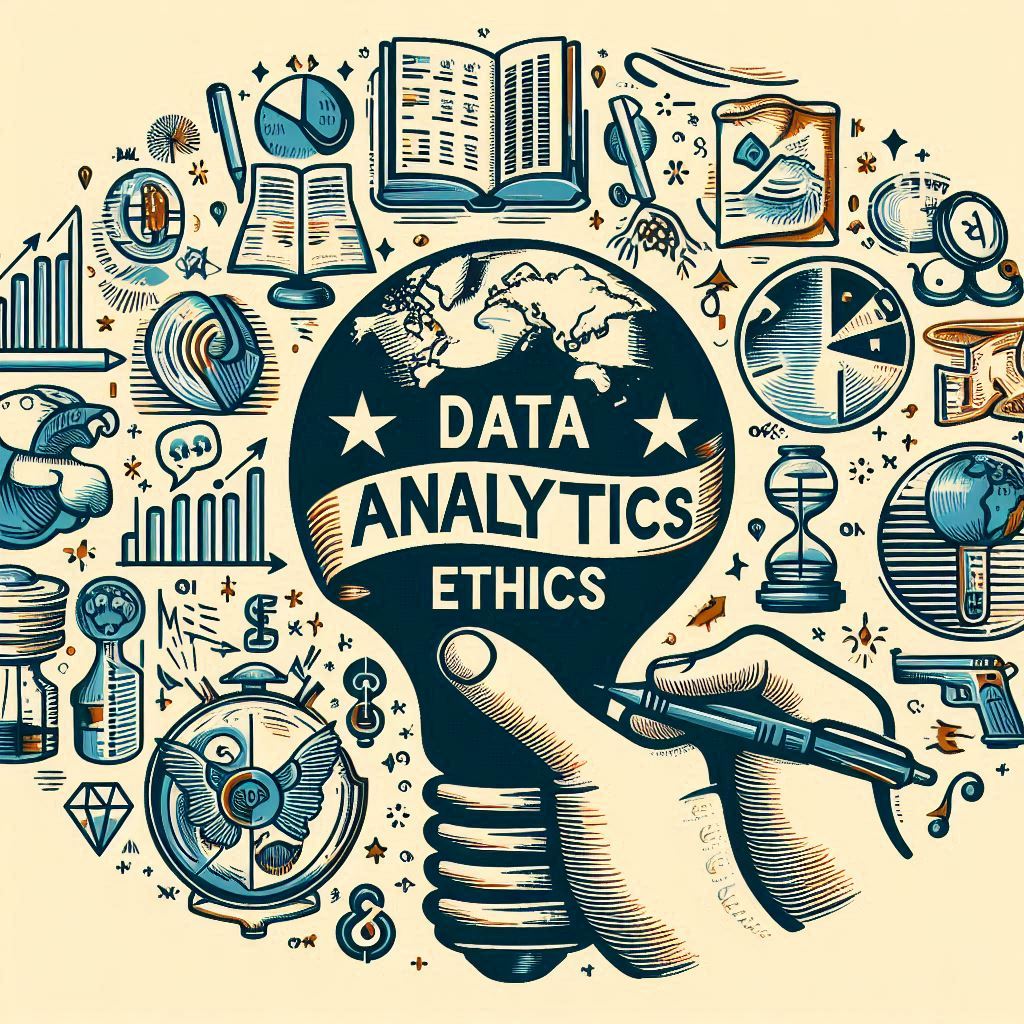In the digital age, data analytics has become a cornerstone of decision-making across industries. As data analytics evolves, it raises significant ethical concerns, particularly regarding privacy and bias. This blog aims to provide job seekers and career aspirants with comprehensive insights into these ethical issues, enriched with practical examples and actionable tips.
1. Understanding Data Privacy
Definition and Importance
Data privacy refers to the proper handling, processing, and storage of personal data to protect individuals’ information from unauthorized access. It ensures that data subjects’ rights are respected and that their information is used in ways that they consent to.
Legal Frameworks
Various legal frameworks govern data privacy worldwide. Notable examples include the General Data Protection Regulation (GDPR) in Europe and the California Consumer Privacy Act (CCPA) in the United States. These regulations mandate strict guidelines for data collection, consent, and user rights, emphasizing transparency and accountability.
Real-World Examples
Facebook-Cambridge Analytica Scandal: This incident highlighted the misuse of personal data for political advertising, leading to widespread public outcry and stricter regulatory scrutiny.
Google’s GDPR Fine: In 2019, Google was fined €50 million for failing to provide transparent and easily accessible information about its data consent policies.
2. Data Bias in Analytics
Types of Bias
Data bias occurs when data is not representative of the intended population, leading to skewed analysis and outcomes. Common types include:
- Selection Bias: Arises when the sample data is not representative of the overall population.
- Measurement Bias: Occurs due to inaccuracies in data collection.
- Algorithmic Bias: Happens when algorithms reinforce existing biases in the data.
Impact on Decision-Making
Bias in data analytics can lead to unfair and discriminatory outcomes, particularly in sensitive areas like hiring, law enforcement, and healthcare. For instance, biased algorithms in hiring processes can perpetuate gender and racial disparities.
Case Studies
Amazon’s AI Recruiting Tool: This tool was found to be biased against women because it was trained on resumes submitted over a ten-year period, most of which came from men.
Predictive Policing Algorithms: These have been criticized for disproportionately targeting minority communities, reinforcing existing biases in law enforcement practices.
3. Mitigating Ethical Issues
Best Practices for Data Privacy
- Data Minimization: Collect only the data necessary for the specific purpose.
- Transparency: Clearly inform users about data collection methods and usage.
- Consent Management: Implement robust mechanisms to obtain and manage user consent.
- Data Anonymization: Use techniques to anonymize personal data, reducing the risk of identification.
Strategies to Reduce Bias
- Diverse Data Sets: Ensure that the data used for analysis is representative of the entire population.
- Bias Detection Tools: Utilize tools and frameworks designed to identify and mitigate bias in data.
- Regular Audits: Conduct regular audits of algorithms and data sets to detect and correct biases.
- Inclusive Design: Involve diverse teams in the design and implementation of data analytics processes.
Tools and Technologies
- Fairness Indicators by TensorFlow: Helps identify and visualize fairness issues in machine learning models.
- IBM Watson OpenScale: Provides bias detection and mitigation tools for AI models.
- Microsoft Fairlearn: An open-source toolkit for assessing and improving fairness in AI.
4. Actionable Tips for Professionals
Building an Ethical Data Culture
- Ethical Training: Provide regular training on data ethics and privacy to all employees.
- Leadership Commitment: Ensure that organizational leaders prioritize and model ethical behavior.
- Clear Policies: Develop and enforce clear policies on data privacy and bias mitigation.
Continuing Education and Certification
- Courses: Enroll in courses on data ethics, such as those offered by Coursera, edX, and other online platforms.
- Certifications: Obtain certifications in data privacy (e.g., CIPP/US, CIPM) and ethical AI (e.g., MIT’s AI Ethics certification).
Networking and Community Involvement
- Join Professional Groups: Participate in groups like the Data Ethics Society or local meetups focused on ethical data practices.
- Conferences and Workshops: Attend events to stay updated on the latest trends and best practices in data ethics.
5. Conclusion
Summary of Key Points
Ethical considerations in data analytics are paramount in today’s data-driven world. Understanding and addressing privacy concerns and biases are crucial for maintaining public trust and ensuring fair outcomes. By implementing best practices, leveraging tools, and fostering an ethical culture, professionals can navigate these challenges effectively.
Future Trends and Considerations
As data analytics continues to evolve, so will the ethical challenges. Future trends include increased regulation, the development of more sophisticated bias detection tools, and a greater emphasis on ethical AI. Staying informed and proactive is essential for professionals in this field.


Leave a Reply